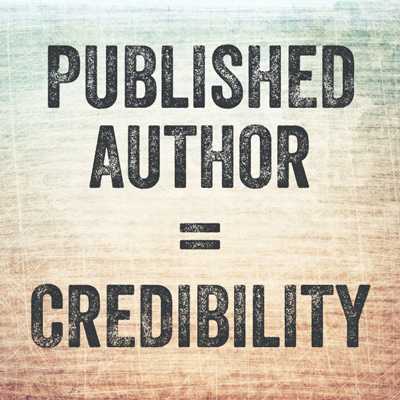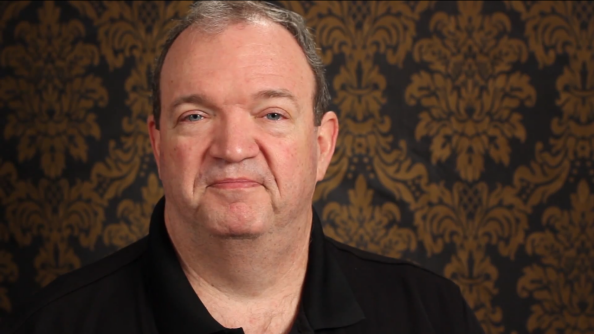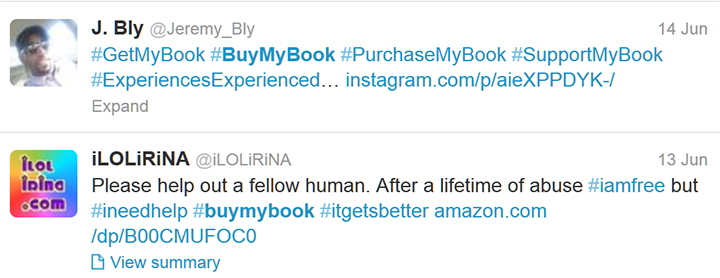Thousands of authors every year get in touch with me and ask me how they should go about getting their books published. I tell every single one that they should not take the easy way and self-publish, but instead try and get a book deal by a major publisher.
I understand that many authors who write their first book do not do it as quickly as James Patterson or Stephen King. Sometimes it takes a few years and other times it takes a decade. You get attached to the premise and plot, to the characters and the inciting force. Shopping your book around to agents and publishers helps you understand how to sum up your book in an elevator style pitch and deal with rejection. When you shop your title around you get a sense on what they expect your cover art to look like and get feedback on proper formatting.
When you get a trade publishing contract it is important to note that you have a small army of people that have a vested interest in your success. Your agent earns a commission if you sell a ton of copies and in order to do that they will often schedule book tours and autographing sessions. You will learn how to talk about your book in a room full of people, even if you are anti-social. I like to refer to this as trial by fire. You will also get someone who is good at cover art helping you out and an ISBN number so your book sales can be tracked.
There are countless writers that used to have a trade publishing contract and decided it might be more lucrative to take their firm understanding of the publishing industry and try out self-publishing. Sadly, this is not a guarantee of success.
Tracy Hickman is a fantasy writer who basically established the Dragonlance series of books. Some of his titles made it onto the New York Times bestseller list and people used to lineup around the block to get his autograph. He decided to self-publish and now his books are not in bookstores anymore and lamented that “I have a 6 million following,” he said quietly, “and they don’t remember me.”
If a bestselling author can’t make it self-publishing, can you as a first time writer? Likely not.
The vast majority of startup writers have no understanding of a marketing strategy that will give them a leg up on the competition. Instead they spam social media with hashtags #buymybook. The vast majority of indie writers are also very lazy, they won’t even spend the $99 for an ISBN number so their books will be included in market data. Instead they just complain about research and reports on the publishing industry is skewed because they don’t take into account indie books.
Bowker Market Research reported a little while ago that self-published ebooks now account for 12% of the entire digital publishing market. In some cases, the number actually rises to a very respectable 20%, but is fairly genre specific to crime, science fiction, fantasy, romance, and humor. 95% of these books are insufferable and are written to capitalize on trends in publishing, with authors trying to emulate successful writers such as E.L. James or Cassandra Claire.
At a recent publishing conference in London, Andrew Franklin, founder and managing director of Profile Books, blasted authors who self-publish. “The overwhelming majority of self-published books are terrible—unutterable rubbish, they don’t enhance anything in the world.” He ranted on by saying, “These books come out and are met with a deathly silence, so the principle experience of self-publishing is one of disappointment. I was very shocked to learn you can buy Facebook friends and likes on social media. That is what passes for affirmation in what I think is the deeply corrupt world of self-publishing.”
Self-published authors constantly try to game the system, instead of understanding proper marketing. Not only do they buy Twitter and Facebook followers, but also book reviews.
A report by Gartner Research pointed out a very disturbing trend in the ebook industry: fake or paid reviews. Many companies are actively creating duplicate user accounts and posting reviews on a book in an effort to gain more sales. In other cases, self-published authors like Stephen Leather create multiple accounts to generate buzz on forums and to leave reviews on his own books.
Todd Rutherford formally ran a website called GettingBookReviews.com that reviewed books for $99.99 a pop or arranged 20 reviews for $499 or 50 reviews for $999. He would post them on Amazon, Barnes and Noble, and other self-publishing websites to help authors get noticed. It certainly helped indie darling John Locke, who ordered 300 reviews and went on to sell over one million ebooks on Amazon. Before this website was shut down, it was generating $28,000 a month from authors looking for a competitive advantage. There are plenty of other services that offer the same type of book review scheme, most indie authors know who they are.
Why don’t I recommend first time authors self-publishing? Its utterly and completely corrupt. If you are a well adjusted person with a halo above your head and go to church on a weekly basis, you will soon sprout devil horns and start speaking in tongues. When you self-publish, you have no understanding of how the publishing industry works and you never will. You will constantly make mistakes and never learn from them, because nobody will bring them to your attention.
Trade publishing is the only way to go if you want to win awards and enjoy worldwide acclaim. Most literary awards are closed to self-published books. Entry criteria for the Booker prize state that “self-published books are not eligible where the author is the publisher or where a company has been specifically set up to publish that book”, while the Bailey’s women’s prize for fiction stipulates that books must come from a “bone fide imprint”.
Michael Kozlowski is the editor-in-chief at Good e-Reader and has written about audiobooks and e-readers for the past fifteen years. Newspapers and websites such as the CBC, CNET, Engadget, Huffington Post and the New York Times have picked up his articles. He Lives in Vancouver, British Columbia, Canada.



